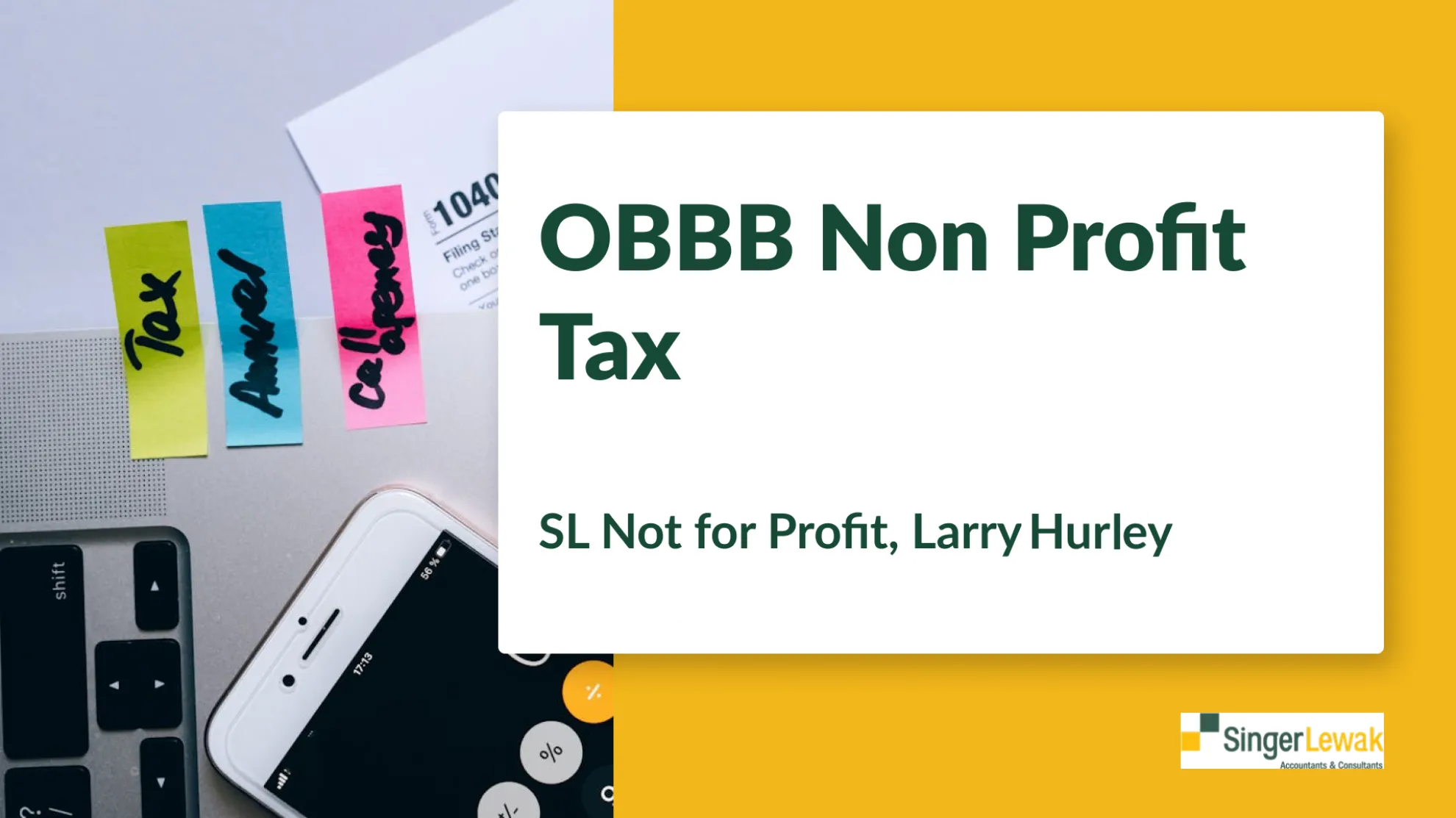How the One Big Beautiful Bill Act Impacts Nonprofits
The One Big Beautiful Bill Act, signed into law in July 2025, introduces major tax reforms that affect nonprofits of all sizes. Here’s what you need to know:
Charitable Giving Provisions
- Universal Deduction: Non-itemizers can now deduct up to $1,000 (or $2,000 for joint filers) in cash donations.
- Impact: Could increase small-dollar donations from everyday givers, especially since nearly 90% of taxpayers don’t itemize.
- Itemized Deduction Floor: Itemizers can only deduct contributions above 0.5% of AGI, potentially reducing large gifts.
- Impact: May reduce the incentive for large gifts, requiring nonprofits to adjust donor messaging and timing strategies.
- Corporate Giving Floor: Corporations must donate at least 1% of taxable income before deductions apply.
- Impact: Could reduce corporate giving by an estimated \$4.5 billion over 10 years.
Targeted Giving Incentives
- Scholarship Tax Credit: Donors can claim a $1,700 credit for gifts to public charities offering scholarships to low-income K–12 students.
- Impact: Encourages targeted giving but may divert funds from general-purpose nonprofits.
Excise Tax on Executive Compensation
- Excise Tax: A 21% tax now applies to compensation over $1 million for any employee, not just top executives.
- Impact: Affects large nonprofits, especially in healthcare and education, and may require compensation restructuring.
Excise Tax on Endowment Taxes
- University Endowment Tax: Private universities face a tiered tax on investment income based on endowment size.
- Impact: Could reduce available funds for scholarships and programming.
Unrelated Business Income Tax (UBIT) Transportation Benefits
- Transportation Benefits: Parking and transit benefits are now subject to 21% (UBIT).
- Impact: Nonprofits must report these on Form 990-Tif total UBTI exceeds $1,000.
Overtime Payroll
- Overtime Deduction: Workers can deduct up to $12,500 ($25,000 for joint filers) in overtime income—employers must reflect this on W-2s.
- Impact: Employers must report this separately on Form W-2, increasing payroll complexity.
Community Development Opportunities
- Permanently extends and expands:
New Markets Tax Credit
Low-Income Housing Tax Credit
Opportunity Zones
- Impact: Opens new funding and partnership opportunities for nonprofits in housing, economic development, and climate sectors.
What You Can Do
- Review your donor strategy and educate supporters on new giving rules.
- Assess your executive compensation and fringe benefits for tax exposure.
- Explore new funding opportunities through community development programs.
Conclusion
The One Big Beautiful Bill Act presents both challenges and opportunities for nonprofits. While new compliance requirements and giving restrictions may require strategic adjustments, expanded deductions and development incentives offer fresh avenues for growth. Now is the time for nonprofit leaders to reassess financial practices, engage donors proactively, and position their organizations for long-term sustainability in a changing policy landscape.



